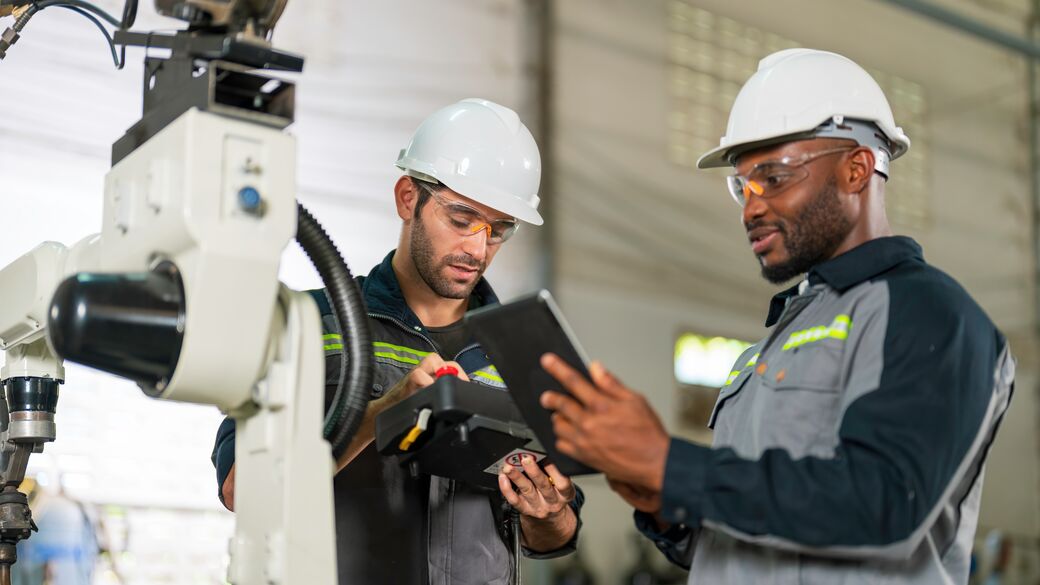If you've had great customer service at a store recently, chances are a machine had a role in the transaction. Artificial intelligence (AI) is transforming online and in-store shopping by customizing recommendations, automating delivery, and increasing efficiency.
Artificial intelligence uses algorithms to carry out actions based on historical data, events, and statistics. Tools can forecast customer demand and adjust inventory orders to keep up with sales. Programs assist customers and offer the level of service they demand. In fact, a third of customers will abandon a business if they didn't receive personalized service, according to Accenture.
While it's still new, more retailers are adding AI retail technology to their businesses. 41% of the top 100 retailers use its power to streamline operations and build relationships with shoppers, according to a study by Capgemini Research Institute. And Juniper Research predicts that the amount retailers spend on AI technology will grow to $7.3 billion by 2022—up from approximately $2 billion spent in 2018.
How can AI transform your retail business?
Forecast Demand
Lost sales are a retailer's nightmare. No one wants shelves full of stale merchandise that they can't move. Nor do they want to run out of popular items only to find they're no longer available from vendors. Artificial intelligence in retail can help by forecasting demand.
Clothing retailer H&M is a good example of a store that uses artificial intelligence to understand the shopper. The company uses an AI algorithm that analyzes sales and returns. The data tells stores which items to promote and clear out, and which to restock in certain locations.
During flu season, Walgreens used AI retail technology to forecast demand. The drug store chain uses data from the prescriptions it fills to stock inventory of flu-related products in infected regions.
Provide a Better Customer Experience
AI also has features that make shoppers feel more valued. While a customer shops online, AI retail tools recommend items based on past sales or browsing history.
In addition, AI can customize the online experience. For example, AI can display a different version of a retailer's website based on a customer's past interactions. And AI can deliver customized coupons or offers based on their purchase or browsing history.
The activity isn't just welcome—it’s becoming expected. A study by marketing software provider Epsilon found that 90% of shoppers like personal service.
Sephora is a retailer that excels at using AI retail tech to improve the customer experience. Its in-store AI tool—Color IQ—scans a customer's face and recommends shades of foundation and concealer. Another tool—Lip IQ—analyzes the customer's face to help find a perfect shade of lipstick.
Macy's released the app “On Call”—developed with IBM Watson. Acting as a personal assistant, On Call lets customers chat with a bot while inside the store to locate items. The online consignment store ThredUp uses an AI algorithm to remember customer preferences. It uses the information in its Goody Box subscription to better match their style. And West Elm uses AI by connecting to a customer's Pinterest board. It recommends items that match their décor style.
Improve Operations
AI is also helping retailers streamline operations—and save money. The Capgemini study found that artificial intelligence tools could save retailers as much as $340 billion each year by 2022. 80% of the savings coming from supply chain operations and returns.
AI tools could save retailers as much as $340 billion each year by 2022.
The German online retailer Otto uses AI to predict purchasing patterns of consumers, according to Capgemini. The brand estimates that it cuts down on returns by more than two million items each year. It uses algorithms that make more accurate suggestions to shoppers.
Automation in retail also improves the speed and preparation and shipment of customer packages. Some companies use robots that pick and pack on their own. Others use tools that help workers locate correct items. Either way, the use of AI retail tech can cut down on errors that could result in returns that impact profits.
AI has made operations more efficient for customers, too. Chatbots can quickly answer their questions. And self-checkout stations can increase the amount of lines available, potentially moving customers through their transactions faster.
In retail, offering great customer service is a major part of your success. While training your employees is one way to achieve it, customers want options for finding information on their own. Only 29% of customers want to talk to a salesperson to learn more about a product, according to Hubspot.
AI frees up your employees to do what they do best—building relationships that take the customer experience and your business to the next level.








